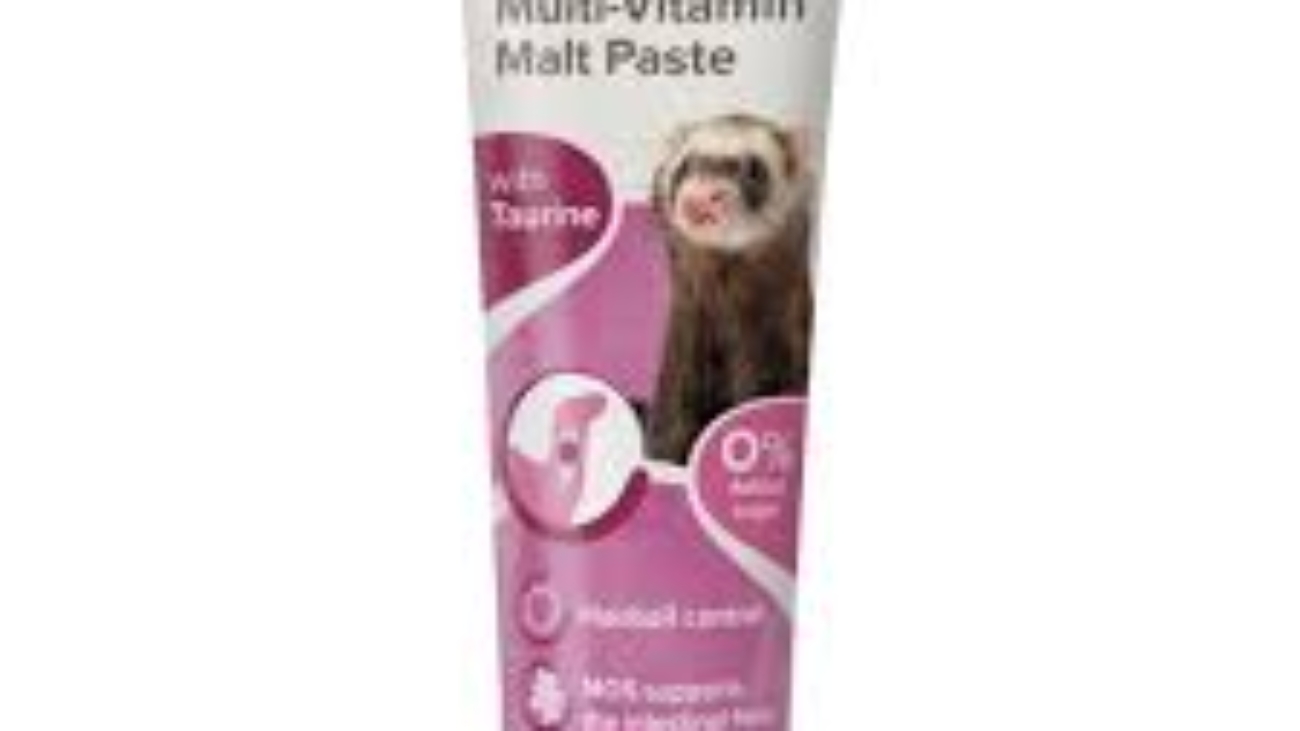Ferret Vitamins, Ferrets are beloved pets known for their playful nature and curious personalities. Just like any other pet, ferrets require proper nutrition to thrive, and one crucial aspect of their diet is vitamins. In this article, we delve into the world of ferret vitamins, exploring why they are essential and which ones are vital for your ferret’s well-being.
Why Are Vitamins Important for Ferrets?
Vitamins play a crucial role in maintaining a ferret’s overall health and vitality. These essential nutrients are involved in various bodily functions, including metabolism, immune system support, and bone health. Ferrets, being carnivorous animals, have specific dietary needs that must be met to ensure they receive all the necessary vitamins and minerals.
Essential Vitamins for Ferrets
- Vitamin A: This vitamin is crucial for vision, immune function, and skin health. Ferrets obtain vitamin A from animal sources like liver and eggs.
- Vitamin D: Vital for calcium absorption and bone health, vitamin D is essential for preventing bone disorders in ferrets. Natural sunlight exposure is the best source of vitamin D for ferrets, although it can also be supplemented in their diet.
- Vitamin E: An antioxidant that protects cells from damage, vitamin E is important for ferrets’ immune system and reproductive health. It can be found in foods like nuts and seeds.
- Vitamin B Complex: This group of vitamins includes B1 (thiamine), B2 (riboflavin), B3 (niacin), B6 (pyridoxine), and B12 (cobalamin). They are essential for energy metabolism, nerve function, and overall well-being.
- Vitamin C: While ferrets can produce their own vitamin C, supplementation may be necessary in certain cases, such as during illness or stress.
Sources of Ferret Vitamins
Ferret owners can ensure their pets receive adequate vitamins through a balanced diet and, if needed, supplements. Commercial ferret food formulated specifically for their nutritional needs often contains added vitamins and minerals. However, it’s essential to check the label and choose high-quality, reputable brands.
In addition to commercial food, ferrets can benefit from occasional treats such as small pieces of cooked egg or lean meat, which provide natural sources of vitamins like A and D. However, these should be given in moderation to avoid nutritional imbalances.
Supplementing Ferret Diets
While a well-balanced diet should meet most of a ferret’s vitamin requirements, there are instances where supplementation may be necessary. For example:
- During Illness: Sick ferrets may have increased vitamin needs to support their immune system and recovery. Your veterinarian may recommend specific supplements.
- Pregnancy and Lactation: Female ferrets (jills) require additional vitamins and minerals during pregnancy and nursing to support healthy growth in kits.
- Senior Ferrets: Older ferrets may benefit from vitamin supplements to support aging-related health issues.
Always consult with a veterinarian before adding any supplements to your ferret’s diet, as excessive amounts of certain vitamins can be harmful.
Conclusion
Ferret vitamins are essential for maintaining optimal health and well-being in these delightful pets. By providing a balanced diet, occasional treats, and consulting with a veterinarian when necessary, ferret owners can ensure their furry companions receive the vitamins they need to thrive and live happy, active lives.

